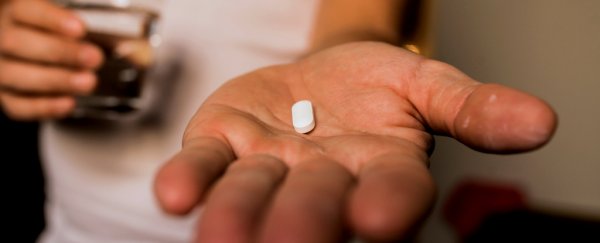In recent years, bacteria have been growing increasingly resistant to antibiotics – our strongest weapon against them.
It's generally thought that it's the overuse of antibiotics driving this trend, but now it looks like non-antibiotic medications can play a significant role too.
Specifically, as researchers from Australia's University of Queensland have just discovered, a drug called fluoxetine - a selective serotonin reuptake inhibitor (SSRI), and the key ingredient in antidepressants such as Prozac and Sarafem.
The researchers embarked on the study to demonstrate that it's not just antibiotics that are triggering the rise of the superbug.
"Our previous study reported that triclosan, a common ingredient in toothpaste and hand wash can directly induce antibiotic resistance," said engineer Jianhua Guo of the University's Advanced Water Management Centre.
"We also wondered whether other non-antibiotic pharmaceuticals such as fluoxetine can directly induce antibiotic resistance."
The test involved exposing the bacterium Escherichia coli (or E. coli) to different concentrations of fluoxetine, in body-temperature baths that were changed daily for 30 days.
After this, the mutated bacteria were transferred to agar plates that contained an antibiotic. The researchers found that these bacteria had a greatly increased resistance to antibiotics chloramphenicol, amoxicillin and tetracycline - up to 50 million-fold compared to the control.
The stronger the concentration of fluoxetine, the faster the bacteria mutated over time.
And isolated mutant bacteria with a resistance to one of those antibiotics was also found to show multiple resistances against fluoroquinolone, aminoglycoside, β-lactams, tetracycline and chloramphenicol, the researchers found.
According to the researchers, up to 11 percent of the fluoxetine in medication travels through the body unchanged, and enters the environment via the sewer system after the patient urinates it out.
"Fluoxetine is a very persistent and well-documented drug in the wider environment, where strong environmental levels can induce multi-drug resistance," Guo said.
"This discovery provides strong evidence that fluoxetine directly causes multi-antibiotic resistance via genetic mutation."
That doesn't mean that everyone needs to stop taking it immediately; for many people, fluoxetine is a fantastic life-saving medication. However, the study does point to other areas that need to be looked into.
First, it was conducted in the lab. How the drug impacts the microbiome inside the human body is yet to be investigated.
Second, what other non-antibiotic drugs could be having a similar effect?
A 2016 study estimated that by 2050, antibiotic-resistant superbugs will be killing 10 million people per year. So it's vitally important that we figure this out - and try to find a way to fix it.
"[Fluoxetine] has previously been an invisible factor in the spread of antibiotic resistance," said researcher Min Jin, "but we should consider this a warning."
The research has been published in the journal Environment International.
